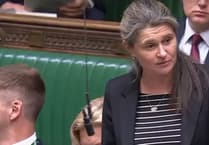WE are finally coming to the end of our training sessions and introductions to officers. I attended the Planning East Committee on June 9 where we had three applications.
One site for five houses had been turned down twice before. Because of the new National Planning Policy statement last autumn, Cornwall Council cannot demonstrate a five year land supply. This tilts the balance in favour of granting permission to fulfil targets set by Westminster. Reluctantly, permission in principle was granted, despite objections from the parish council, as it isn’t land allocated by their Neighbourhood Development Plan. It remains to be seen if the houses will be built, as builders aren’t building unless they can see a profit from the development.
Later the same week the Strategic Planning Committee gave permission for 22 turbines, each 115 metres high near Launceston, which will be able to supply up to 10 per cent of Cornwall’s electricity supply. This project, which will be unsubsidised by the government, is being funded by a local business, with site rents being paid to farmers. Davidstow cheese factory will also be connected directly to the turbines, providing cheaper electricity, making that business more resilient. As a Green Lib Dem, I am glad to see renewable energy projects coming forward, which will be delivered in a short timescale, with benefits for the local economy. In contrast, earlier this week the government announced it was spending £14.2-billion on Sizewell C nuclear plant, which will not come online for at least another decade.
As a former farmer, I was sorry to learn that Labour haven’t adopted the Lib Dem policy on support for the environment and farming. Labour have already cut DEFRAs budget by £300-million and are now committed to cutting it further every year for the next three years. When I was farming, DEFRA funding was vital to help me maintain and enhance wildlife habitats and create public access.
I was also disappointed to hear that the South West did not benefit from any investment in transport projects. We desperately need investment to improve safety on the A38 and it would have been great to learn that the Tamar Tolls would be abolished. Not only would this have encouraged investment in SE Cornwall, but it would also reduce the cost of accessing health and other services in Plymouth. There is money to upgrade Devonport dockyard, but not to maintain the bridge and ferry connecting that dockyard to South East Cornwall. Why can’t Labour understand that “investment” doesn’t just mean new buildings? It appears that funding only went to regions controlled by a Mayor, or Labour heartlands.
After Brexit, the promise that Cornwall would keep its £100-million per year structural investment fund soon turned to dust, as the Treasury’s “green book” favoured funding London and the South East. The Chancellor is now re-writing these “value-for-money” rules, but will the new formula simply favour Northern cities, or will it recognise the importance of investing in rural areas too?





Comments
This article has no comments yet. Be the first to leave a comment.